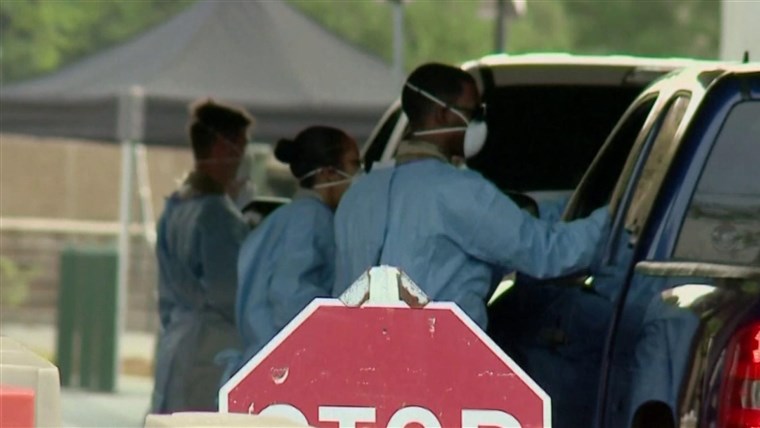People with obesity, diabetes and high blood pressure are at greater risk for complications from the coronavirus, according to a large study of patients hospitalized with the illness it causes.
The findings, published Wednesday in the Journal of the American Medical Association, confirm what physicians nationwide have noted anecdotally.
Full coverage of the coronavirus outbreak
The study included data on 5,700 people hospitalized with COVID-19 in the New York City area.
Underlying conditions were common. The researchers found that, among all patients, 57 percent had high blood pressure, 41 percent were obese and just over a third had diabetes.
April 22, 202004:48
People with those chronic health problems call their physicians if they experience new or unusual symptoms or have contact with a person diagnosed with COVID-19, said the researchers, from the Feinstein Institutes for Medical Research at Northwell Health in New York.
That’s “because those patients, at least from our description, are highly represented in the people who have a severe course of the disease,” said Karina Davidson, senior vice president at the Feinstein Institutes for Medical Research.
The study wasn’t designed to answer why those conditions are more common among very ill patients. However, it’s well known that those diseases increase the risk for other problems, such as heart disease.
Patients in the study who had diabetes were also more likely to be placed on ventilators and develop kidney problems while in the hospital.
Download the NBC News app for full coverage of the coronavirus outbreak
Researchers also found that fever wasn’t a reliable warning sign of infection. Just one-third of patients had elevated temperatures when they were triaged upon arrival.
Other known symptoms of the coronavirus include cough, headache, trouble breathing, severe fatigue and loss of smell and taste. But those symptoms tend to vary from person to person. And it’s unclear whether certain symptoms might serve as warning signs that a person might end up in the hospital with severe disease.
Davidson said Northwell Health is training medical students to go back and analyze patient charts for such symptoms.
“Is there any pattern of symptoms that predicts a worse outcome or predicts people are in fact going to be safe and can be managed at home?” Davidson asked.
“We think that’s the burning question.”




















